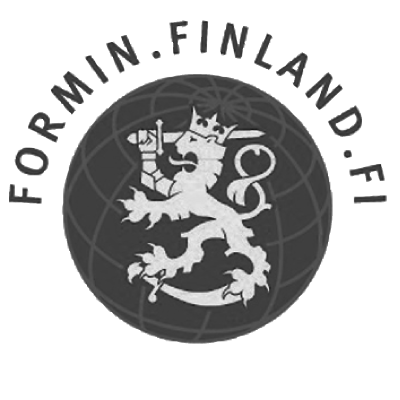AKE Programs
African Knowledge Exchange (AKE)
An Integrated model for digitally- driven skills development and start-up creation
GESCI’s AKE – Creative Media Venture program is unique in that it features:
- High level skilling and collaboration in three inter-related digital media (animation, games design and music & sound) leading to the development of industry-standard multi-media projects;
- A seamless transition from skills development to start-up creation with the support of industry, media experts and mentors;
- A Living Lab “action research” methodology, which includes monitoring, evaluation and learning applied in the area of creative media skills to start-up creation;
- A focus on African cultural expression in story, art, song and dance, which inspires participants to explore their own culture when developing the multi-media projects.
Initially, GESCI sought, through practice and action research, to: a) Identify the critical link between skills development, learning & innovation and job creation and to inform policy on how new technology-driven skills could be efficiently developed among the youth in Africa. b) Identify new technology-driven training scenarios that enable new skills development which will facilitate employment and job creation in the emerging knowledge societies in Africa. c) Fully integrate entrepreneurial-ism practice (not just theory) in the training scenario and facilitate start-up creation
Key features of the skills development model
GESCI has developed a new and innovative training model which facilitates commercial - standard skills and entrepreneurial abilities which will lead on to small enterprise creation in technology-based arenas supported by whatever supports currently existing for start-ups. Crucially, the model is also applicable to traditional employments in services areas and to new and emerging ICT-based service opportunities for start-ups and self- employment. This is a one year integrated training and enterprise programme which provides:- ICT –based skills to a standard that is commercially relevant. Appropriate digital tools and software are incorporated in the modernised training curriculum.
- Training has a clear emphasis on guidance and direction together with technical, advisory, mentoring and consultative supports at every phase of the project rather than a re-establishment of the traditional teacher/student environment.
- Trainees experience team-working and collaborative project design and development to simulate real-world employment environments and market-place standards.
- In the third quarter, practical entrepreneurial advice, guidance and mentoring from existing industries and experts is provided followed by the establishment of small start-ups which have marketable products or services to offer and which, ideally, already have commissioned work in hand.
Technology-embedded skills , Start-ups established, Entrepreneurial practice/job creation, Mentorship and business advice.
Entitled African Knowledge Exchange (AKE) - A creative Media venture, this one year programme provided the participants/ young entrepreneurs with the opportunity to focus on five central objectives of the project:
- Provision of access to the full range of digital media equipment, software and tools in GESCI’s digital media production studio to allow participants to improve their creative media skills in an inter-related and collaborative environment involving Animation, Games Design and Apps and Music and Sound Design.
- The identification, selection and development of multi-media projects which have promising commercial potential in themselves and also have blueprinting or replicable potential in the marketplace.
- Provision of professional training in each of the three skills areas together with advice and external mentoring on the processes of start-up formation.
- Periodic “open house” workshops with industry representatives, mentors and experts to advise and critique students’ project work.
- A professionally- designed Living Lab research methodology was adopted throughout the project with the objective of developing a new, unique and scalable training and enterprise model which integrates creative digital media skills development, product identification and their development to commercial standards. This was carried out in conjunction with the University of Aalto Media Lab, Finland, an expert centre on the Living Lab model.
- Formation of a number of start-ups with already -commissioned project work.
- Games and Apps Development
- Music and Sound Design
- Animation (2D/3D) and
- Culture and Storytelling
The success and impact of the model in implementation are as follows:
- The model responds directly to both employers’ skills requirements by facilitating industry- standard skills development relevant to the job market and to self-employment.
- It is a cost-effective training cycle and shorter than that currently provided through formal TVET institutions
- Entrepreneurial-ism in practice, not theoretical, in relevant skills development to create small start-up enterprises
- A model can be replicated across traditional and the emerging technology-based service sectors where start-ups and self-employment proliferate. 100% employment achieved to date.
- The central important of national/regional Policy supports for cutting-edge and innovative training initiatives. Policy and its funded implementation must bridge the gap between skills development and the provision of supports for business opportunities and start-ups
- The importance of policy measures to support sustainability of innovation initiatives.
- Increased knowledge and awareness of the challenges and opportunities for linking skills development and business development and creating enabling conditions for youth skills development that leads to employment in new and emerging ICT- based service sectors
- The urgent need for fundamental curricular reform in TVET to reflect the job market and the increasing importance and application of ICT in all jobs
- Identified new possibilities on the relationships between new skills development and business practices - a cross-cutting partnership model
- The importance of establishing “centres of practice” rather than just classrooms
- The need to reach out to the industrial and commercial community and incorporate their advice and contribution to modern skills development
- The importance for trainees to establish connections to other stakeholders for future partnerships and collaboration towards securing business opportunities
- Relevance of the local-to -global market place
- Understanding the need for clear visions and leadership skills for collaborative and multi-disciplinary project development and for team-driven project execution
- Appreciating ownership of knowledge, social value creation and new ways of sourcing, creating and re-purposing creative content and understanding copyright and intellectual property rights; new outlooks on the changing marketplace
- Understanding sustainability in terms of jobs , start-ups and free-lancing
- Strategies to build AKE sustainability in skills development (content and model) and through networks (hosting an innovation network)
Development of 21st Century Skills for Innovation and Enterprise: Exploring the role of Informal Learning Environments in the Development of Skills and Aptitudes for the Digital Creative Media Industries 2013. GESCI (2013)
African Economic Outlook (2014): Youth Unemployment. Retrieved from Horowitz, M. A. and Saarinen, V. (2015) GESCI-AKE 2014/2015 Creative Media Skills Course “The Sound of the City” - Living Lab Research Component: Final Report, Retrieved from: https://thesoundofthecity.wordpress.com/
GESCI-AKE (2013) Policy Recommendations for Skills Development and Innovation in Africa, Retrieved from: http://www.gesci.org/assets/file/AKE%20Policy%20Forum%20Recommendations%20Henry%2017.05.13.pdf
http://www.africaneconomicoutlook.org/theme/developing-technical-vocational-skills-in-africa/tvsd-in-specific- contexts/youth-unemployment/
This initiative is funded by the Ministry for Foreign Affairs, Finland.
View Students Work
Here are some videos produced by students during the programme.





